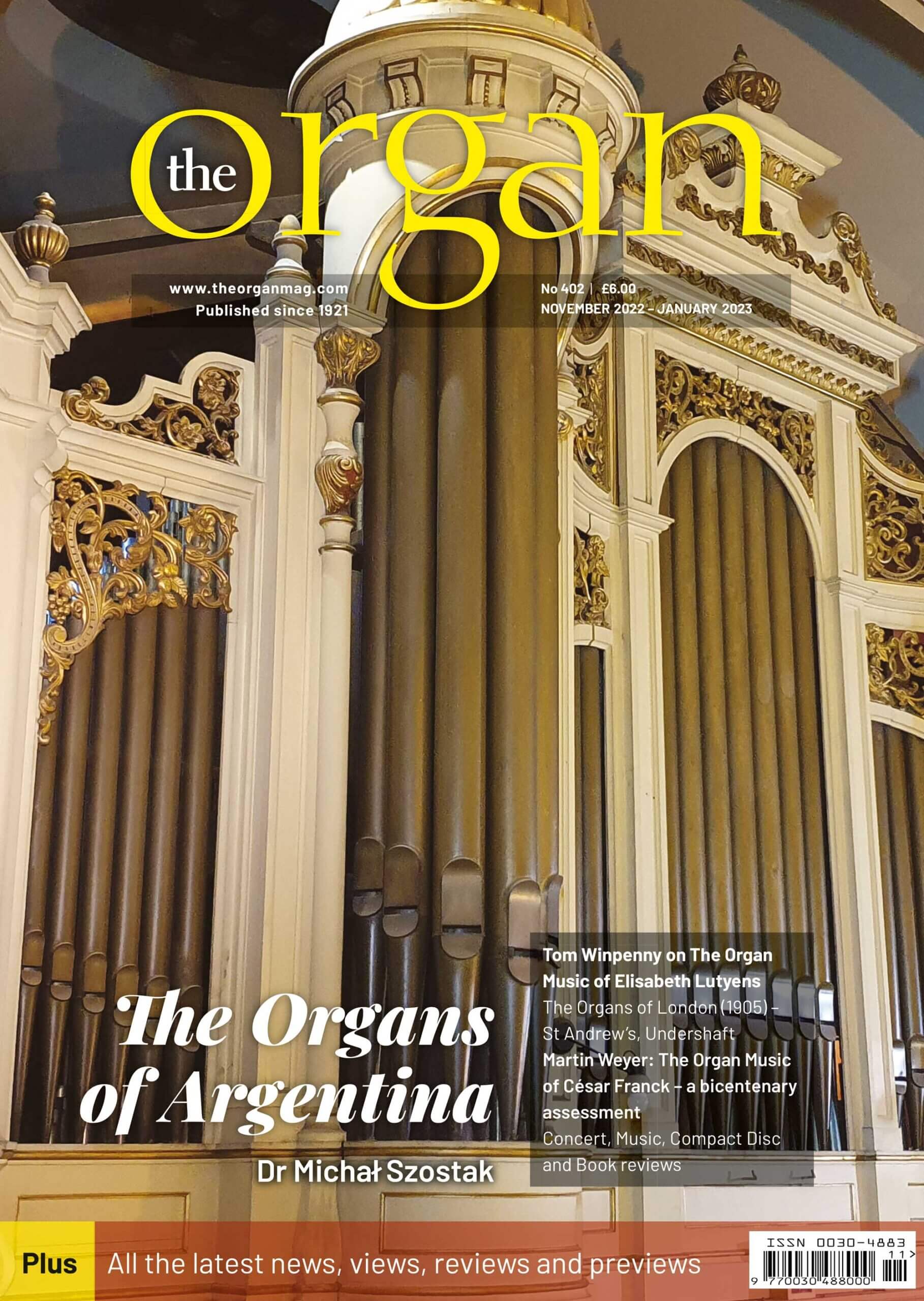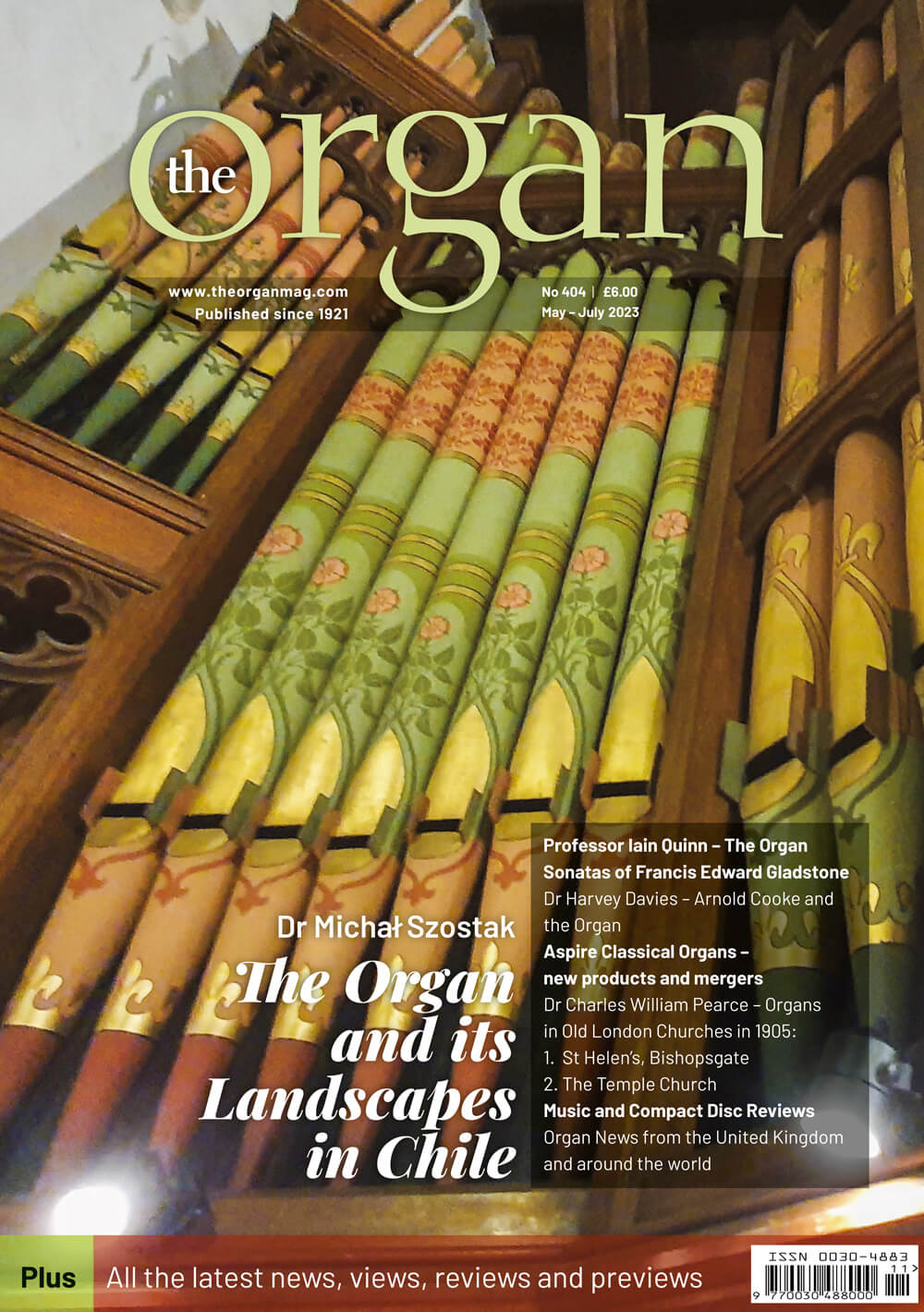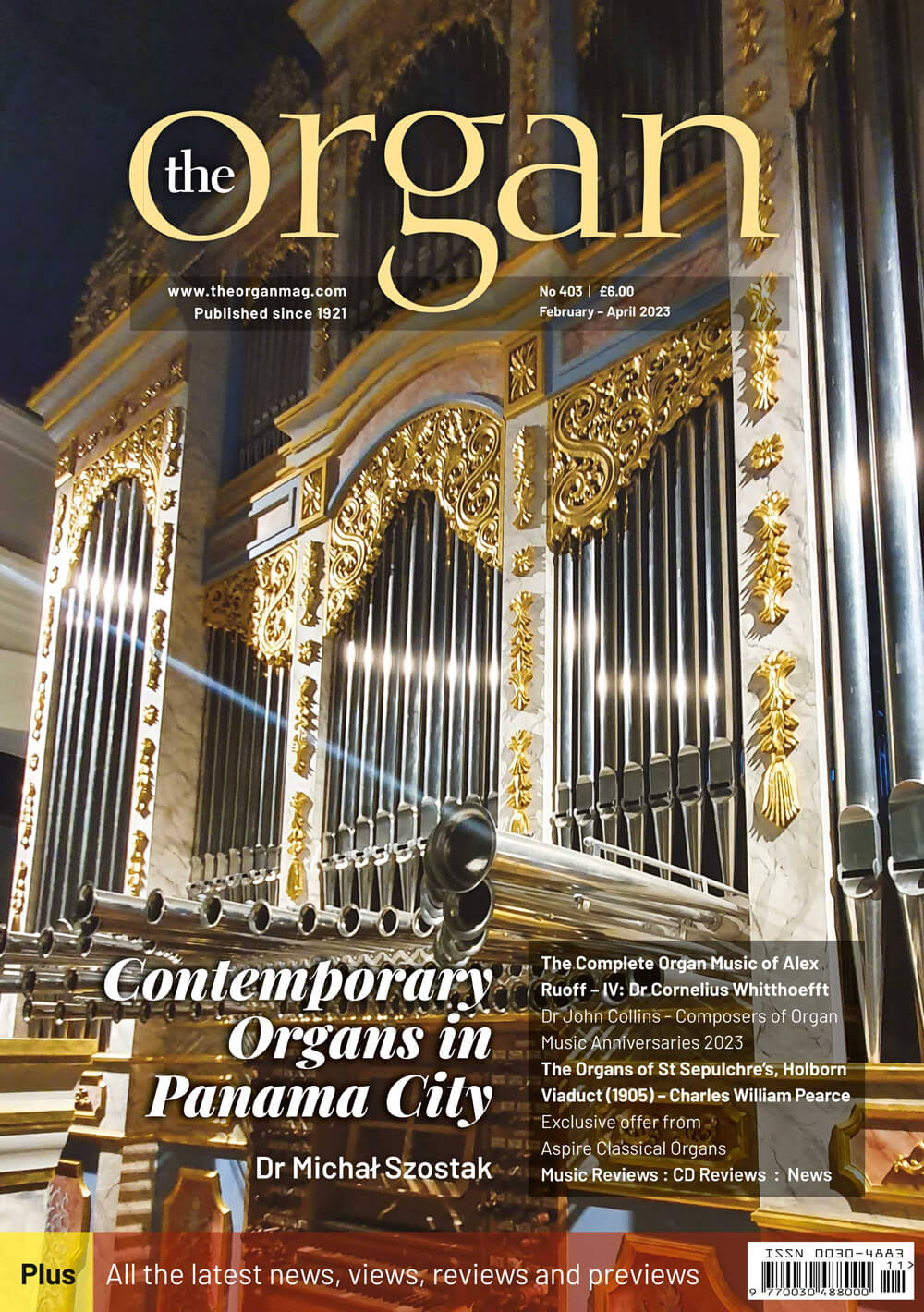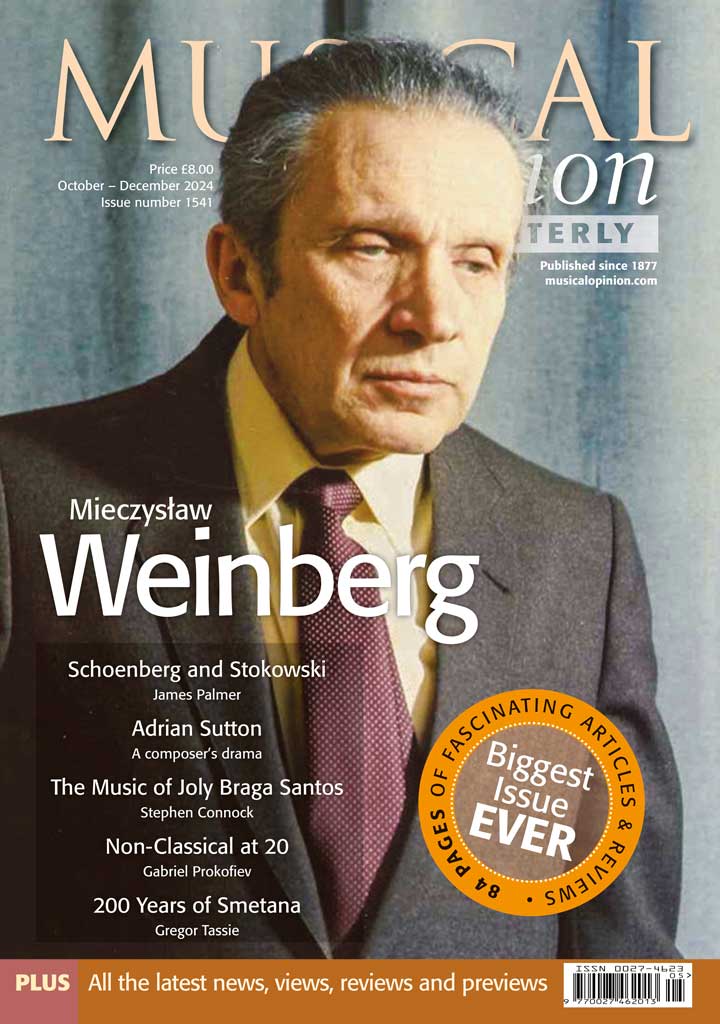

Current Issue
News
Judith Monk appointed BEM
Many with not too long memories will remember Judith Monk, deputy editor for about 15 years from approximately 2000 to 2015. During those years when she was busy keeping the magazine vibrant, revitalising the readership profile and interviewing not less than hundreds...
The Proms
The 2023 BBC Proms will run from Friday 14 July to Saturday 9 September. The full programme of concerts, recitals, operas et al has been published. All will be played live or online during the traditional summer season. A full guide is available online....
Some SOMM releases
The highly respected independent music publisher SOMM has released two recordings which ought to be of interest to all serious music lovers. Thomas Beecham Conducts Richard Strauss - ARIADNE 5021 Just released is the first release on disc of three works by Richard...
BBC Singers reprieved
The BBC has paused its decision to close the BBC Singers, after "a number of organisations" came forward to offer alternative funding. The group, which is the UK's only full-time professional chamber choir, was targeted by budget cuts shortly before celebrating its...
Explore By Topic
Presteigne Festival
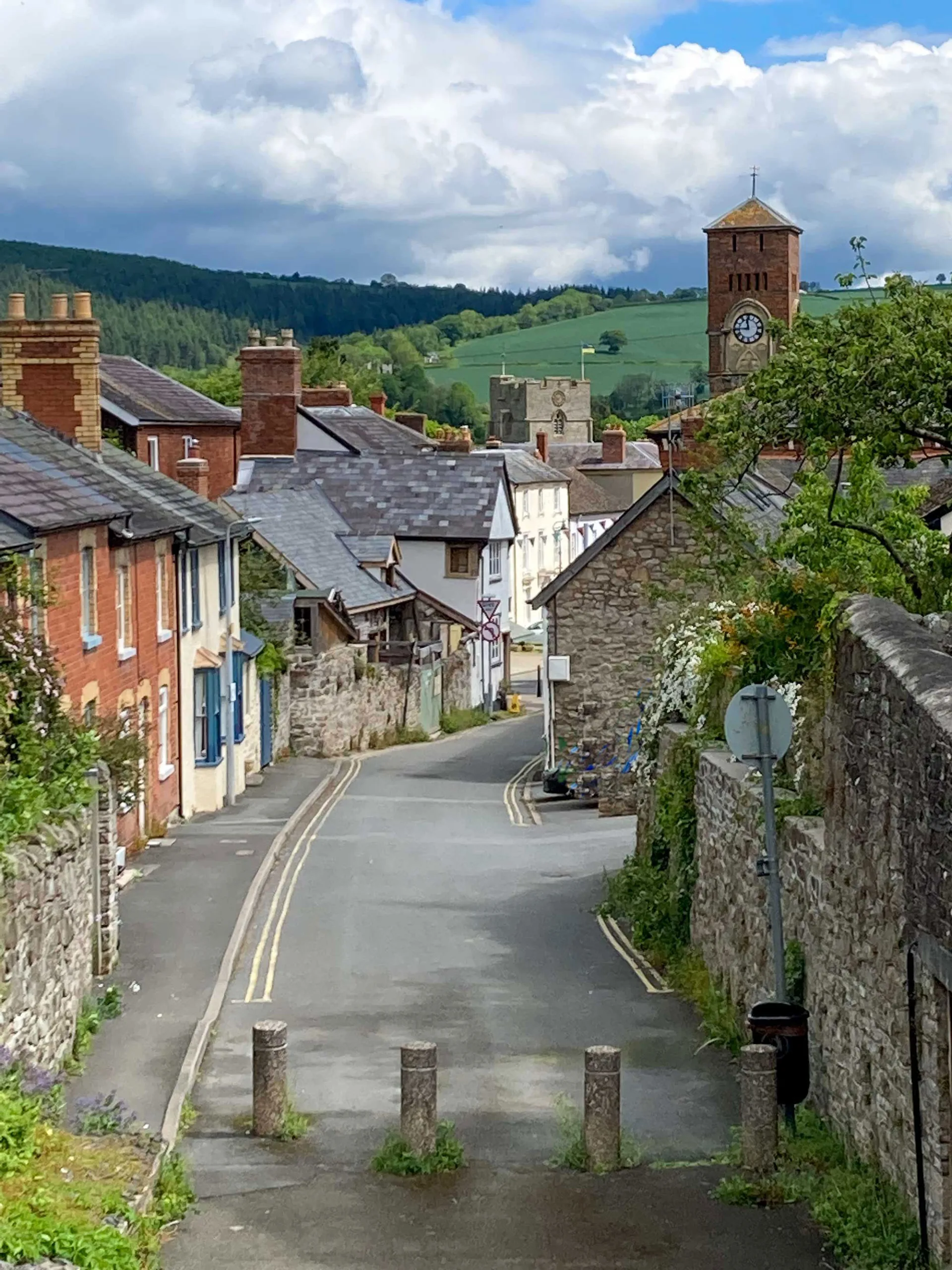
The 2022 Presteigne Festival celebrated forty years of inspiring music-making in Radnorshire with a characteristically eclectic and carefully planned series of concerts taking place over six days in late August. Several exciting festival commissions and premieres were thoughtfully programmed alongside mainstream repertoire, with a welcome emphasis on the music of Ralph Vaughan Williams to mark his 150th birthday year. I attended the last four days of the festival and opted for events with an emphasis on contemporary fare, taking advantage of this annual occasion’s matchless advocacy of new music.
An afternoon recital by Nicholas Daniel and Huw Watkins at St Andrew’s Church, Presteigne offered a satisfying selection of British music for oboe and piano. Richard Rodney Bennett’s Four Country Dances (2000) is a set of free-spirited arrangements of tunes from Playford’s ‘Dancing Master’, a 17th-century dancing manual containing the music and instructions for English country dances. Not really light music, but rather music which requires a lightness of touch, Bennett’s delightful miniatures were presented with disarming fluency and attention to detail. Thea Musgrave’s Night Windows (2008) is dedicated to Nicolas Daniel, who addressed this exacting score’s florid, occasionally serpentine oboe writing with a thrilling balance between interpretative adventurousness on the one hand and technical precision on the other. Huw Watkins’ Five Welsh Folksongs deeply personal arrangements retained much of the original tunes’ inherent character as the composer enhanced and embellished the underlying themes rather than seeking to transform or update them with his own musical language. Swapping his oboe for a cor anglais, Nicholas Daniel’s rendering of ‘The Blackbird’ was especially poignant and Watkins’ deft adaptation of ‘All Through the Night’ furnished a fresh treatment of a much-loved melody. To end their recital, the players gave the premiere of David Matthews’ Sonata for oboe and piano (2021), written for Nicholas Daniel. This substantial, five-movement piece contained several echoes of the composer’s previous works, with birdsong in the opening Allegro, a ‘blues’ trio in the following scherzo and a tango fourth movement. Based on an aria in Matthews’s new opera Anna, the slow third movement was particularly affecting and the bustling closing rondo had at its heart a synoptic cadenza that referred to material from all the previous movements. A significant addition to the repertoire, David Matthews’ Oboe Sonata received a polished and sensitive first performance.
St Michael’s Church, Discoed was the picturesque setting for an imaginatively planned concert by the Carducci Quartet and saxophonist Amy Dickson. In their attentive account of Judith Weir’s lean and elegant String Quartet (1990), the Carduccis struck a well-judged balance between wry humour and wistful longing and reinforced the irresistible impression that the universal appeal of this composer’s writing lies in its iconoclastic spirit. Amy Dickson joined the quartet for the premiere of Aileen Sweeney’s Cosmic Dawn, commissioned by the festival. Inspired by Earendel, the most distant star captured by the Hubble telescope, the work began and ended in a spaciously conceived, nebulous haze which surrounded taut, energetic central sections, some of which were more sharply defined than others, as if the material was shifting in and out of focus. Cosmic Dawn was highly effective and realised fully the potential of its compact, astutely pared back material. Amy Dickson responded keenly to her musical line’s painterly aspects and her deeply expressive approach to the score was echoed by the Carduccis. Cecilia McDowall’s Dancing Fish (2004) provided the five players with another colourful narrative. An element of Russian folksong recurs throughout the piece, which moves from an initial watery serenity to fevered dancing as the fish of the fable end up in the frying pan. It was possible to enjoy the piece as a dramatic and variegated quintet without being aware of all the twists and turns of the story underlying it and the players ensured this vivid and engaging folktale-inspired score unfolded with edge as well as wistful nostalgia. To conclude, the Carducci Quartet gave a richly sonorous account of Vaughan Williams’s String Quartet no.2 in A minor (1944). Seeking out the visionary strength of the Romance second movement and alert to the more unsettled aspects of the Prelude and Scherzo movements, the performers located the work’s emotional heart in the lambent concluding Epilogue. This rewarding event afforded attractive repertoire, impeccably rendered.
An evening concert at St Andrew’s Church, Presteigne, given by the Bath Camerata and the Presteigne Festival Orchestra, conducted by George Vass, featured a wealth of British choral and orchestral music. A glorious account of Elgar’s Serenade for Strings opened proceedings. With all the musicians seemingly breathing and phrasing as one, the central Larghetto was immaculately shaped and profoundly felt, while the ideally paced outer movements had enough breadth and space to articulate each tiny motif with precision and accuracy. This was playing of an extremely high order, entirely at the service of the music. Commissioned by the Australian Chamber Orchestra, Tarik O’Regan’s Chaâbi, for strings (2012) takes its name from a form of Algerian traditional music derived from Jewish and Muslim musicians. Reflecting on the sounds from a bygone era, the piece explored the relationship between soloists and ensemble and contrasted passages of meditative beauty with spirited outbursts of rhythmic intensity. Chaâbi’s clear narrative was always convincing in a performance endowed with committed solo and ensemble playing. Countless and wonderful are the ways to praise God, for choir and string orchestra by Gabriel Jackson is a 2012 setting of poetry by the Estonian writer Doris Kareva. Juxtaposing paragraphs of still contemplation and euphoric, dance-like passages, Jackson’s devotional music explored exaltation and reverence in equal measure. The singers of Bath Camerata were faithful to the score’s inward and outfacing aspects, supported by picturesque and intricate string lines, cogently realised by the Vass and his dedicated players. After a crisp, compellingly characterised account of Vaughan Williams’s Five Variants of ‘Dives and Lazarus’, the concert concluded with a gloriously uplifting rendering of James Francis Brown’s The Heavens and the Heart (2016). Premiered at the festival six years ago, this vibrant, festive series of settings of three Psalms for choir and an orchestra consisting of harp, horns and strings reinforces the meaning of ‘psalm’ as a vehicle for praise and thanksgiving. Taking advantage of the harp’s lyrical associations and the whooping horns’ suggestions of outdoor pursuits, the compelling cantata-like piece touched emotional depths in the austere central movement and reached heights of exhilaration in the outer movements, the composer here proving himself eminently capable of creating that comparative rarity in modern music – genuinely fast music.
Saxophonist Amy Dickson and the Bath Camerata, conducted by Benjamin Goodson, gave an eclectic afternoon concert at Priory Church, Leominster. Partly inspired by NASA space recordings, Cheryl Frances-Hoad’s Beyond the Night Sky was commissioned to celebrate Professor Stephen Hawking’s 75th birthday in 2017. Ethereal and atmospheric, the piece drew the audience in to its alluring soundworld. Solo writing, sparingly deployed, the occasional use of humming and whistling, and hypnotic repetition of certain words in the text all contributed towards the score’s mesmerically powerful effect. The Bath Camerata singers embraced the vocal writing’s illustrative elements to form a strong, self-assured opening item. Amy Dickson then performed Heroes for solo saxophone, written for her by Australian composer Matthew Hindson. The piece was conceived during lockdown and the title refers to the genuinely heroic people putting their lives at risk during the pandemic. The work began rhapsodically, full of uncertainty and foreboding, but gradually achieved fluency and finally gathered resolve by the closing bars. Amy Dickson instinctively brought to light this reflective miniature’s compassion and integrity. Tarik O’Regan’s Threshold of Night, for choir (2006), is a setting of one of Kathleen Raine’s ‘Three Poems of Incarnation’. Written for Advent, the piece expresses a desire for guidance and made a strong impression with its soulful, bluesy harmonies. It was followed by another festival commission, The Wrath of Troilus, for saxophone and choir composed by Cheryl Frances-Hoad as a sort of companion piece to Beyond the Night, heard at the start of the concert. Both works are concerned with stars and the universe, but the new piece uses ancient texts and includes a significant role for saxophone, portraying Troilus, blustering and bragging until his last gasp. In some ways, the new work is the antithesis of its predecessor, being chant-like and almost homespun in the straightforwardness of much of its choral writing, with a wry use of pauses. By contrast, the saxophone provided floridly elaborate phrases, expertly rendered by Amy Dickson. A hard-headed counterpart to its earlier, bewitching cousin, The Wrath of Troilus was unexpectedly punchy and in its prosaic choral payoff, ‘And thus he died’, tersely humorous. The musicians appeared to relish its gruff idiosyncrasies and dispatched it with necessary aplomb. Thomas Hyde’s Magnificat, for unaccompanied choir (2017) resounded with the exultant quality of a genuine hymn of praise, offsetting beauty and intimacy with contrapuntal rigour. Gratefully written for voices, this heartfelt paean was sung with passion. Written for alto saxophone and chorus, Gabriel Jackson’s setting of the liturgical Marian hymn Ave maris stella (2017) was elaborately adorned with ornate saxophone lines and rooted in fervent, sometimes chant-like choral writing. The performers found a numinous beauty in this music, which was at once contemporary and also appearing to reach out, joyfully, to a previous age. Owain Park’s Caelos ascendit hodie, for two solo sopranos and divided choir (2017) retained the splendour of a flourish for its brief duration and its constant rhythmic shifts kept both executants and audience on their toes. Toby Young’s Ralph, for solo saxophone, was inspired by the antics of the composer’s young puppy, its intensity and excitability also a reference to our adjusting, post-lockdown, to the ‘new normal’. Amy Dickson subtly conveyed the hectic and disquieted qualities of the music which underlay its more playful gestures. The concert concluded with a powerful rendition of Nicholas Maw’s motet for mixed choir and soloists, One foot in Eden still, I stand (1990). The Bath Camerata had the full measure of this consummately scored and structured choral work, which ended their programme on a musical peak.
At St Andrew’s Church, Presteigne, the Leonore Piano Trio’s early evening recital balanced three recent instrumental works with a mainstream classic of the chamber repertoire. They began by premiering a piece written for them, Huw Watkins’ Piano Trio no.2, jointly commissioned by the festival. This one-movement piece of considerable substance was divided into clearly-defined sections. Beginning with a striking gesture in the composer’s own instrument, the piano, the opening bars set out the basic material from which the rest of the work was derived. A gradual increase in the tempo of each of the work’s subsections generated momentum as the music’s narrative unfolded. An avowedly non-programmatic piece, this fine addition to the repertory was all about the notes. The score’s solid virtues of cogent thematic, harmonic and rhythmic development and idiomatic writing for all three instruments were safely brought out by the dedicatees. Played by cellist Gemma Rosefield and pianist Tim Horton, Joseph Phibbs’ Cello Sonata (2021) had the feeling of a suite and consisted of six movements, each in a different vein. The duo ensured that the various vignettes were sharply etched, finding celerity in the opening Prelude, poignancy in the ballad-like Threnody, an improvisatory freshness in the Soliloquy, scored for solo cello, a distanced elegance in Ghost Dance, shadowy urgency in Notturno and gentle resolve in the concluding Vocalise. This engaging score diverted listeners with its sequence of variegated character pieces, as well as providing opportunities for both players to demonstrate their expressive range. Next, violinist Benjamin Nabarro joined Tim Horton for the premiere of a festival commission, Bewegt by Ninfea Crutwell-Reade. This playful piece grew out of a consideration of the title’s German performance direction. Usually interpreted as ‘active’, ‘lively’, or ‘with drive’, the term was the springboard for an unflaggingly energetic showpiece for both instruments. Encompassing pizzicato, glissando, harmonics and chordal writing, the broad-spanning violin line seemed to encapsulate every known bravura gesture, accompanied by equally virtuosic piano writing that covered the extremities of the keyboard. The result was a strikingly unconventional chamber piece that appeared to be in a permanent state of self-renewal as it found fresh ways of conveying the mood and spirit suggested by its title. Both players found an ideal balance of vigour, brightness and mischievousness in their approach to this waywardly exuberant meta-étude. A thrillingly full-blooded account of Ravel’s Piano Trio in A minor rounded off the evening with brio and enchantment.
Tim Horton took centre-stage for an afternoon piano recital at St Andrew’s Church. Schoenberg’s elliptical Six Little Pieces, Op.19, were gracefully articulated and shaped. Julian Philips’ Barcarola explored the musical associations of the barcarolle, from Chopin to Fauré and Liszt. Its arresting gestures and almost operatic tension between a lyrical boat song floated over dark, macabre depths cast a long shadow in Tim Horton’s poetic and dedicated interpretation. There followed the premieres of three short pieces written for the festival in memory of Hugh Wood. Thomas Hyde’s Cantilena was delicate and lyrical, almost classical in its clarity of line and simplicity of structure and received a first performance of appropriate finesse. David Matthews’ A Fugue for Hugh included a reference to the final bars of one of Hugh Wood’s last works, his string trio, Ithaca. Tim Horton captured subtly the introspective, rapt quality of this jewelled miniature. Francis Pott’s A Sort of Rainbow takes its title from a phrase by which Milton described his insipient blindness, and the piece uses the opening of Hugh Wood’s First Violin Concerto as its starting point. Reflective and spiky by turns, the music found solace in its closing bars, with Tim Horton ever-sensitive to its changing moods. A remarkably fleet-footed traversal of Schubert’s Drei Klavierstücke, D946, pointed up the inherent drama in these late pieces, the pianist alert to every unexpected shift in mood.
To conclude the festival, Amy Dickson and violinist Benjamin joined the Presteigne Festival Orchestra and conductor George Vass in St Andrew’s Church, for a Gala Concert marking the annual event’s four decades. Trallali, Trallaley, Trallalera by Sarah Frances Jenkins was inspired by the militaristic undertones and nature painting of some of the poems set by Mahler in his cycle Des Knaben Wunderhorn. Describing a dawn patrol, the piece began gently with expressive, ascending phrases conjuring up the expectation of daybreak, but, as the music unfurled, ominous and then sinister episodes, including a ghostly march, intruded. A recurring, thrusting violin figure created a sense of unease and an unmistakable melancholic air hung about the closing section as the music faded away. Generating a sense of scale and heft beyond its modest chamber forces and seven-minute duration, this compact, evocative tone poem received a resourceful and detailed reading. Gerald Finzi’s delightful Three Soliloquies from ‘Love’s Labour’s Lost’ were exquisitely fashioned before Amy Dickson joined the players for the premiere of Tarik O’Regan’s Machine (2022), a festival commission. The material of this concerto for soprano saxophone and string orchestra all stemmed from a short solo piece for saxophone, so the various sections, or tableaux, felt subtly interrelated. An expressive vehicle for the soloist, Machine was interpreted with consummate skill by Amy Dickson, who was attentively accompanied throughout. Benjamin Nabarro joined the orchestra in Vaughan Williams’ neo-classical Violin Concerto in D minor in a reading of refreshing vigour. An equally lively account of Julian Philips’ Divertissement (2004), based on dances by Rameau brought the official programme to a buoyant, life-affirming close, while the Elegy from John Ireland’s A Downland Suite, for strings, played with great warmth and delicacy, made a perfectly-judged encore.

